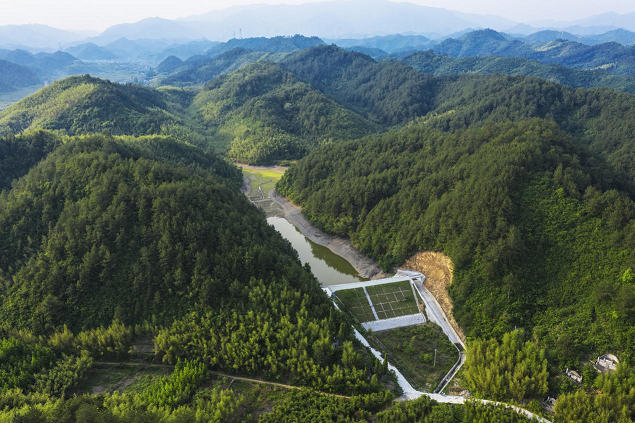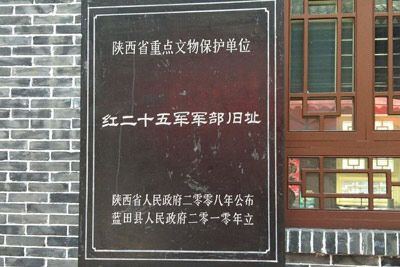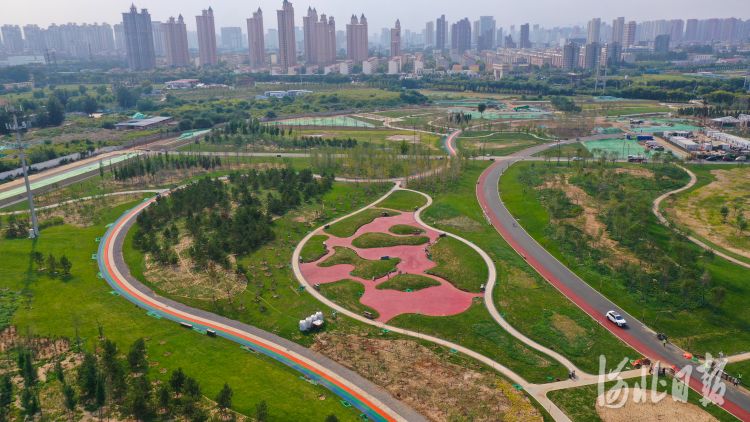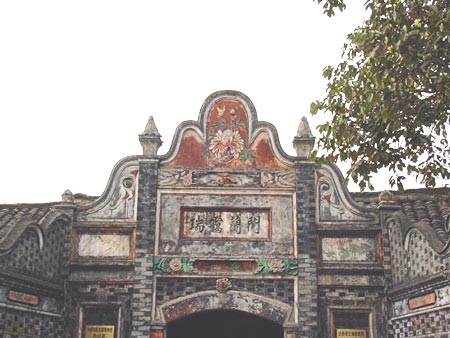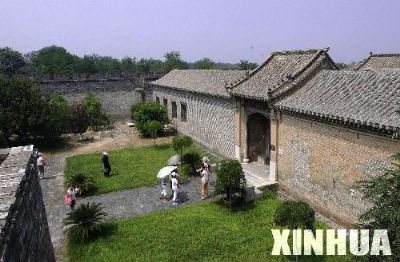Unveiling Hebi Dayunhe Junxianduan: Top Attractions and Activities for Adventurous Travelers
An Essential Guide to Visiting Hebi Dayunhe Junxianduan
In This Guide
- An Essential Guide to Visiting Hebi Dayunhe Junxianduan
- The Rich History of Hebi Dayunhe Junxianduan
- Main Highlights: What to See at Hebi Dayunhe Junxianduan
- Planning Your Visit: A Practical Guide
- Tickets, Hours, and Booking
- How to Get There
- Local Cuisine and Accommodation
- Frequently Asked Questions
- Final Thoughts on Your Trip
Nestled in the northern part of Henan province, Hebi Dayunhe Junxianduan (大运河浚县段), or the Grand Canal of Junxian, is a hidden gem that weaves together the rich tapestry of history, culture, and nature. This section of the Grand Canal, a UNESCO World Heritage Site, serves not just as a vital waterway but also as a lifeline that has nourished the area’s agriculture and commerce for centuries.
As visitors meander along its banks, they are greeted by picturesque landscapes, ancient architecture, and vibrant local communities that echo tales from a bygone era. The Junxian stretch of the canal is particularly renowned for its serene beauty and historical significance, making it a perfect destination for those seeking both adventure and tranquility.
Exploring this region offers an opportunity to delve into the local culture, sampling traditional dishes, and participating in time-honored festivals that celebrate the canal’s enduring legacy. Whether you are a history enthusiast eager to uncover the stories of ancient merchants and scholars or a nature lover looking to experience the tranquility of the waterside, the Hebi Dayunhe Junxianduan promises an unforgettable journey.
Join us as we navigate through the highlights of this enchanting destination, from its iconic landmarks to the delectable local cuisine, ensuring that your visit is both enriching and delightful.
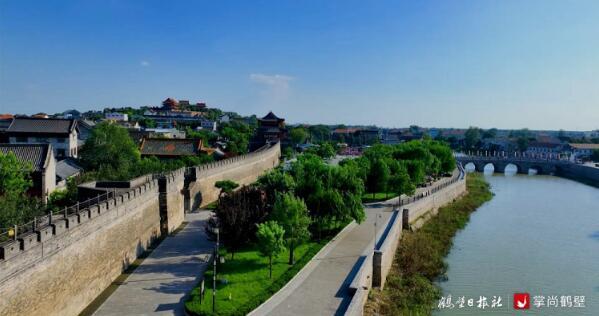
Hebi Dayunhe Junxianduan.
The Rich History of Hebi Dayunhe Junxianduan
The Hebi Dayunhe Junxianduan, part of the ancient Grand Canal, is a historical treasure that weaves through the rich tapestry of Hebi City in Henan Province. This section of the canal is not merely a waterway; it is a vital artery that has facilitated trade, culture, and communication for over a millennium.
The Grand Canal, which stretches over 1,700 kilometers, was constructed in several stages, with its earliest sections dating back to the 5th century BCE. The segment in Hebi, known as the Junxianduan, gained prominence during the Sui and Tang dynasties (581-907 CE), when it became integral to the transportation of goods, particularly grain. This canal not only helped in the economic development of the region but also played a significant role in the unification of Chinese culture by connecting various provinces.
As trade flourished, cities along the canal, including Hebi, witnessed significant growth. The area became a bustling hub where merchants and travelers converged, leading to the emergence of vibrant marketplaces and diverse cultural exchanges. The influence of the canal is evident in the architecture and lifestyles of the communities that developed along its banks.
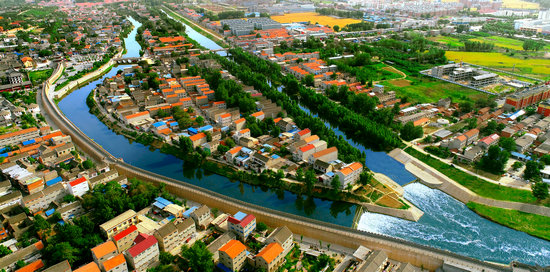
Hebi Dayunhe Junxianduan.
In addition to its economic importance, the canal served as a conduit for the spread of ideas, arts, and philosophies. Scholars traveled along the waterway, sharing knowledge and contributing to the cultural richness of Hebi. The city’s historical significance is underscored by its designation as a national historical and cultural city, recognized for its well-preserved ancient architecture and rich heritage.
The Hebi Dayunhe Junxianduan also bears witness to the evolution of hydraulic engineering in China. The ingenuity of its construction reflects the advanced techniques employed by ancient engineers, who managed to navigate the diverse terrains of the region. Today, remnants of ancient bridges, sluices, and docks can still be seen, offering a glimpse into the past.
In contemporary times, the canal continues to be a focal point for tourism and cultural heritage. Efforts are underway to protect and promote this historical site, ensuring that visitors can appreciate the significance of the Grand Canal and its contributions to the development of Chinese civilization. The annual festivals and cultural events held along the canal celebrate its history and traditions, inviting travelers to engage with the rich stories embedded in the landscape.
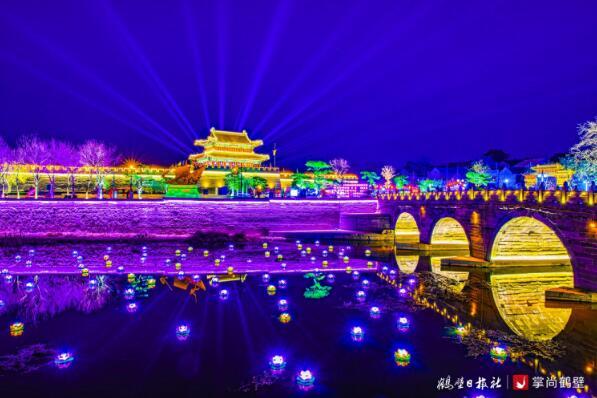
Hebi Dayunhe Junxianduan.
Visiting the Hebi Dayunhe Junxianduan is not merely a journey through a picturesque landscape; it is an exploration of a vital piece of China’s history that has shaped the lives and cultures of its people for centuries.
Main Highlights: What to See at Hebi Dayunhe Junxianduan
The Hebi Dayunhe Junxianduan, located in Xun County, Henan Province, offers a rich tapestry of history, culture, and natural beauty, making it a captivating destination for travelers. Here are the main highlights that should not be missed:
Ancient Town Charm
Step into the Xun County Ancient Town, a designated national historical and cultural city, where the past comes alive. The town is characterized by its stunning ancient architecture, including well-preserved city walls and traditional courtyards. Stroll along the cobbled streets lined with quaint shops and local eateries, where every corner tells a story of its 2,200-year history.
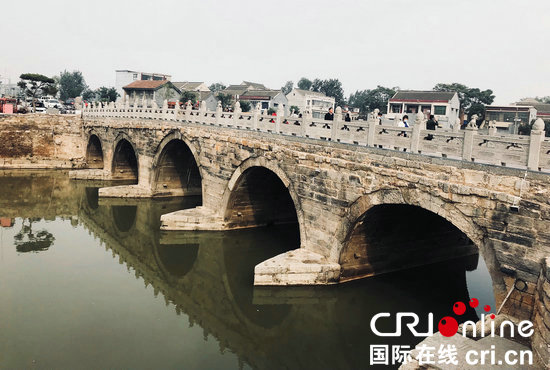
Hebi Dayunhe Junxianduan.
Scenic Landscapes
The region is blessed with breathtaking natural scenery, particularly at Dapi Mountain. Known for its majestic rock formations and historical significance, this site features the North’s largest stone Buddha, standing tall at 22.29 meters. Visitors can explore ancient temples and rock carvings while enjoying panoramic views over the countryside.
Cultural Riches
The area is steeped in culture, notably the rich traditions surrounding the Grand Canal, a UNESCO World Heritage Site. This section of the canal is integral to the area’s identity, showcasing the ingenuity of ancient engineering and the importance of waterway trade in China’s history.
Delicious Local Cuisine
No visit to Xun County is complete without sampling its local delicacies. Be sure to try the renowned “Zimo,” a traditional stuffed flatbread that is crispy on the outside and savory inside. Additionally, indulge in “Chansi Duck Eggs,” a unique dish known for its striking orange yolks and rich flavors. Each bite captures the essence of local culinary traditions.
Festivals and Events
Throughout the year, Xun County hosts vibrant festivals that celebrate its cultural heritage. The lively temple fairs and folk performances showcase traditional art forms such as shadow puppetry and folk dances, giving visitors a chance to immerse themselves in local customs.
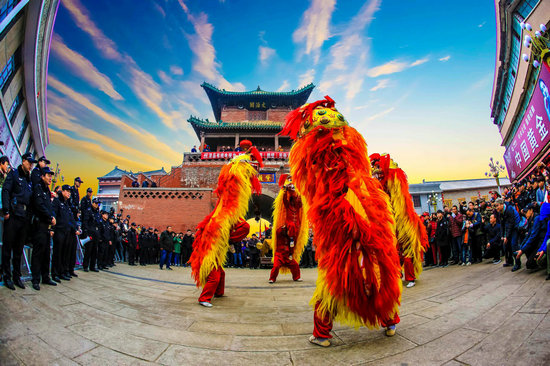
Hebi Dayunhe Junxianduan.
Outdoor Adventure
For those seeking adventure, the surrounding mountains and wetlands provide ample opportunities for hiking, bird-watching, and photography. The region’s diverse ecosystems are home to a variety of wildlife, making it a perfect spot for nature enthusiasts.
Accessibility
Conveniently located near major transportation hubs, including Zhengzhou and Anyang, Xun County is easily accessible by train and car. Local public transport options are also available, ensuring a smooth travel experience for visitors.
With its blend of historical significance, cultural richness, and natural beauty, the Hebi Dayunhe Junxianduan is an unmissable stop for anyone exploring China’s heritage and landscapes.
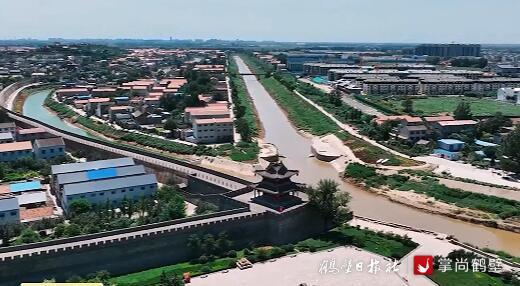
Hebi Dayunhe Junxianduan.
Planning Your Visit: A Practical Guide
When planning a visit to the Hebi Dayunhe Junxianduan (大运河浚县段) in Xun County, Henan Province, it’s essential to have a practical guide to enhance your experience. This area is rich in history, culture, and natural beauty. Below are key details to help you navigate your journey.
Getting There
By Air: The nearest major airport is Zhengzhou Xinzheng International Airport, approximately 80 kilometers away. From the airport, you can take an airport shuttle bus to Hebi, then switch to local transport to reach Xun County.
By Train: Xun County is accessible via high-speed trains at Hebi East Railway Station. Regular services connect Hebi to major cities like Beijing, Zhengzhou, and Xi’an. Once you arrive, local buses and taxis are readily available for further travel.
By Bus: Long-distance buses operate frequently between surrounding cities and Xun County, making it a viable option for budget travelers.
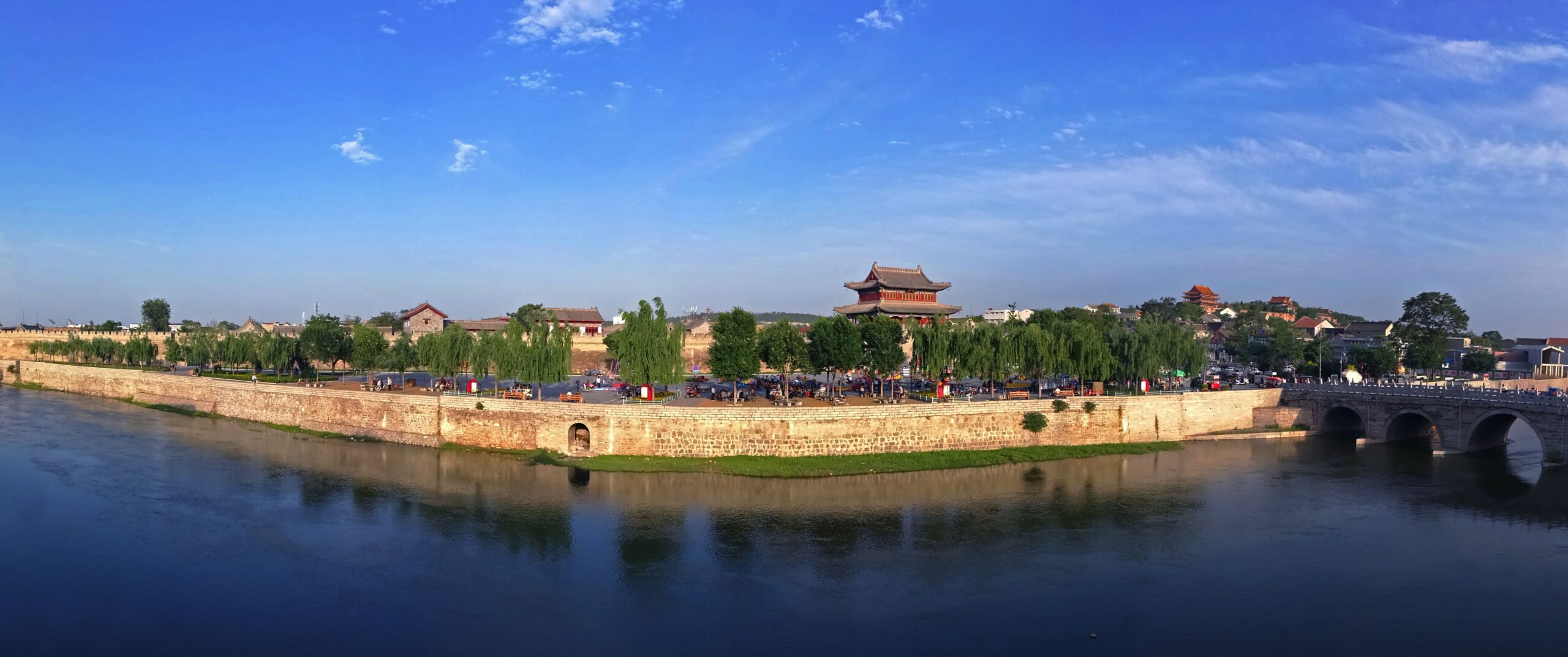
Hebi Dayunhe Junxianduan.
Local Transportation
Once in Xun County, public buses provide comprehensive coverage of the area, including routes to popular attractions. For more flexibility, consider renting a bicycle or car, which allows you to explore the scenic countryside and nearby attractions at your own pace.
Where to Stay
Xun County offers a variety of accommodation options catering to different budgets. Here are a few recommendations:
-
Heritage Hotels: Experience history firsthand by staying in hotels located within the ancient city walls. These often feature traditional architecture and local decor.
-
Modern Hotels: For those who prefer contemporary amenities, there are several hotels in the city center that provide comfortable rooms, dining options, and easy access to public transportation.
-
Homestays: Opt for local homestays to immerse yourself in the culture and hospitality of the region. Many families offer rooms in their traditional homes, giving you an authentic experience.
What to See
-
Xun County Ancient City (浚县古城): A historical gem with well-preserved ancient walls and traditional architecture. Stroll through its narrow streets, explore local shops, and enjoy the vibrant atmosphere.
-
Dapi Mountain (大伾山): Famous for its impressive stone Buddha, this scenic area offers hiking trails, historical temples, and stunning views of the surrounding landscape.
-
Yunmeng Mountain (云梦山): Known as the “First Ancient Military School of China,” this site is rich in history and boasts beautiful natural scenery, making it ideal for hiking and exploration.
-
The Grand Canal (大运河): This UNESCO World Heritage site runs through Xun County. Enjoy a leisurely boat ride to appreciate the historical significance of this ancient waterway.
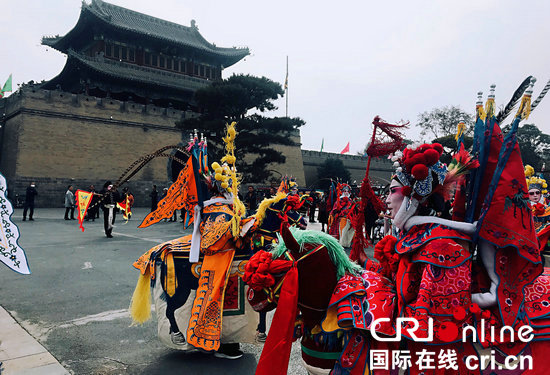
Hebi Dayunhe Junxianduan.
Culinary Delights
Don’t miss out on the local cuisine, which is a highlight of visiting Xun County:
-
Xun County Zimo (浚县子饃): A local specialty, these are round flatbreads filled with meat and eggs. Crispy on the outside and juicy on the inside, they are a must-try!
-
He Bi Silk Duck Eggs (鹤壁纏絲鴨蛋): These uniquely patterned duck eggs are known for their rich flavor and are often used in various dishes.
-
Sticky Fire Burn (黏火燒): A popular dessert made with glutinous rice flour and filled with sweet red bean paste, perfect for satisfying your sweet tooth.
Best Time to Visit
The ideal time to visit Xun County is during the spring (March to May) and autumn (September to November) months when the weather is mild and pleasant. Summers can be hot and humid, while winters may see colder temperatures, so pack accordingly.
Tips for Travelers
-
Language: While Mandarin is the official language, some locals may not speak English. Learning a few basic phrases can improve your interactions.
-
Cash: Although credit cards are accepted in many places, having cash handy is advisable, especially in local markets and smaller establishments.
-
Respect Local Customs: Be mindful of local traditions and etiquette, particularly when visiting religious sites or rural areas.
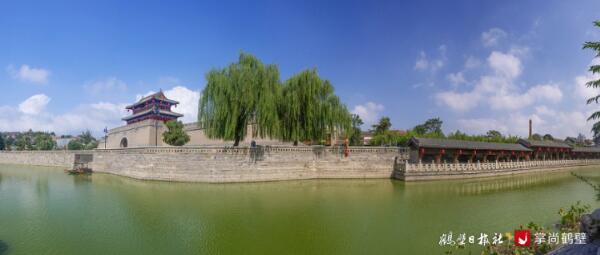
Hebi Dayunhe Junxianduan.
By following this practical guide, your visit to the Hebi Dayunhe Junxianduan in Xun County will be a memorable and enriching experience. Enjoy the blend of history, culture, and stunning natural landscapes that this region has to offer!
Tickets, Hours, and Booking
When planning your visit to Hebi’s Dayunhe Junxianduan, it’s essential to know about the ticketing options available for various attractions in the area. Here’s a comprehensive guide to help you navigate the costs associated with this cultural and historical gem.
Ticket Information
- Hebi Dayunhe Junxianduan Scenic Area
- Entry Fee: Access to the Dayunhe Junxianduan section generally requires a ticket priced around 60 CNY (approximately $9 USD).
-
Discounts: Special rates may apply for students, seniors, and military personnel with valid identification. Be sure to bring your documents to take advantage of these discounts.
-
Nearby Attractions
- Dapai Mountain Scenic Area: Tickets typically cost around 48 CNY (about $7 USD). This site is renowned for its historical significance and stunning natural landscapes.
-
Guling Mountain Scenic Area: Entry to this picturesque location is approximately 33 CNY (around $5 USD). It offers a blend of mythological charm and serene nature.
-
Free Attractions
- Certain sites, such as the picturesque Sangyuan Town, can be explored without any entry fee. This makes it a great option for budget-conscious travelers looking to soak in the local culture and scenery.
Purchasing Tickets
Tickets can be purchased at the entrance of each attraction, but it’s advisable to buy them in advance through official tourism websites or local travel platforms to avoid long queues, especially during peak tourist seasons.
Additional Tips
- Combine Tickets: For those planning to visit multiple attractions, consider looking for combined ticket options, which can offer savings compared to purchasing individual tickets.
- Peak Seasons: During festivals or peak travel seasons, it’s wise to book in advance as attractions may reach capacity.
- Local Events: Keep an eye on local festivals or events, as they may offer unique experiences or special ticket pricing.
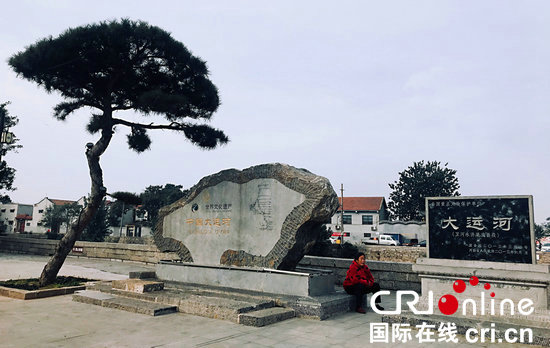
Hebi Dayunhe Junxianduan.
By understanding the ticketing landscape for Hebi’s Dayunhe Junxianduan and its surroundings, you can better budget your trip and ensure a smooth, enjoyable experience in this captivating region of China.
How to Get There
Getting to and around Hebi Dayunhe Junxianduan
Traveling to Hebi Dayunhe Junxianduan, located in the scenic and historic Hebi City of Henan Province, is fairly straightforward thanks to its well-connected transportation network.
Arrival by Air
For international visitors, the nearest major airport is Zhengzhou Xinzheng International Airport (CGO), located approximately 70 kilometers from Hebi. From the airport, you can take an airport shuttle bus to Hebi or opt for a taxi, which might be more convenient if you have a lot of luggage. An alternative option is Anyang Airport (AYN), which is closer at about 40 kilometers away, but it has fewer international flight options.
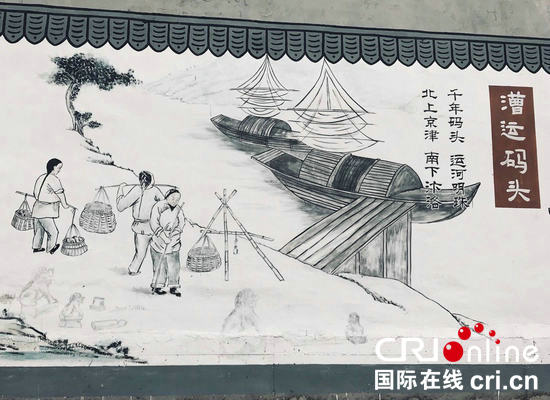
Hebi Dayunhe Junxianduan.
Arrival by Train
Hebi is served by several train stations, with Hebi East Railway Station being the most prominent hub for high-speed trains. This station connects Hebi to major cities across China, including Beijing, Shanghai, and Xi’an. Once you arrive at Hebi East Railway Station, you can take a taxi or use ride-hailing services to reach your final destination within the city or head straight to the Dayunhe area.
Local Transportation
Once you’re in Hebi, getting around is convenient, thanks to a variety of transportation options:
-
Public Buses: The city has an extensive public bus network that covers most areas, including popular tourist sites. Bus fares are affordable, making it a great option for budget-conscious travelers. Look for routes that specifically mention Dayunhe or nearby attractions.
-
Taxis: Taxis are widely available and relatively inexpensive. They offer a more direct and comfortable way to reach your destination, especially if you’re traveling in a group or carrying luggage. Ride-hailing apps like Didi Chuxing are also popular and can be more convenient, especially for non-Chinese speakers.
-
Bicycle Rentals: For those who prefer a more active way to explore, bicycle rentals are available in various parts of the city. Cycling along the scenic spots near Dayunhe can be a delightful experience.
Car Rentals
If you wish to explore Hebi and its surroundings at your own pace, renting a car is a viable option. There are several local and international car rental companies available in the city. Just be sure to familiarize yourself with local traffic laws and road conditions.
Conclusion
Whether you are arriving by air or rail, or getting around within the city, Hebi Dayunhe Junxianduan offers a range of transportation options to facilitate your travel. With its robust infrastructure, accessing this cultural and scenic destination is both practical and enjoyable.

Hebi Dayunhe Junxianduan.
Local Cuisine and Accommodation
When exploring the captivating landscapes and rich history of Hebi’s Dayunhe Junxianduan (大运河浚县段), indulging in local cuisine and finding the right accommodation can significantly enhance your experience. Here’s a guide to some of the best options available.
Culinary Delights
-
Xun County Zimo (子饃)
A traditional favorite, Zimo is a round flatbread filled with succulent meat and eggs, cooked until crispy on the outside while remaining juicy inside. This local specialty is a must-try, offering a delightful combination of flavors that reflect the region’s culinary heritage. -
Hubei Twisted Duck Egg (浚县纏絲鴨蛋)
Unique to the area, this dish features duck eggs marinated to perfection, resulting in a rich, aromatic flavor. The vibrant orange yolk is a treat for the taste buds, making it a popular choice among both locals and visitors. -
Sticky Fire Cake (黏火燒)
A delightful dessert made from glutinous rice flour and filled with sweet red bean paste, this fried treat has a crispy exterior and a chewy texture. It’s a beloved snack that captures the essence of local sweets. -
Shizimian (石子面)
This noodle dish, named after the pebbles used in its traditional preparation, is known for its smooth texture and hearty flavor. Often served with a variety of toppings, it makes for a satisfying meal any time of day. -
Liyang Tribute Noodles (黎陽貢麵)
Known for their fine texture and rich taste, these noodles are crafted through an intricate process that enhances their flavor. Pair them with a savory broth or stir-fried ingredients for a delicious meal.
Accommodation Options
-
Inmo Hotel (隱沫酒店)
Located near the ancient city, this hotel boasts a serene garden-style environment, providing a peaceful retreat after a day of exploration. Guests can enjoy spacious rooms with elegant decor, modern amenities, and a tranquil atmosphere. The hotel also features its own parking and shuttle services, making it convenient for travelers. -
Moshang Qingju Hotel (陌上輕居酒店)
Situated right across from the North City Gate of the ancient town, this hotel offers stunning views and easy access to local attractions. With a blend of traditional and modern design, it provides comfortable accommodations alongside thoughtful amenities like free late-night snacks and afternoon tea. -
Hubei Hilton Garden Inn (希爾頓花園酒店)
For those seeking a more upscale experience, this hotel near Hebi East Railway Station is perfect. It offers modern rooms with all the amenities, including a fitness center and business facilities, catering to both leisure and business travelers. -
Jingxiu Garden Hotel (景秀园酒店)
This hotel is renowned for its beautiful garden and tranquil setting. It’s ideal for families and couples looking for a quiet getaway with easy access to nearby attractions.
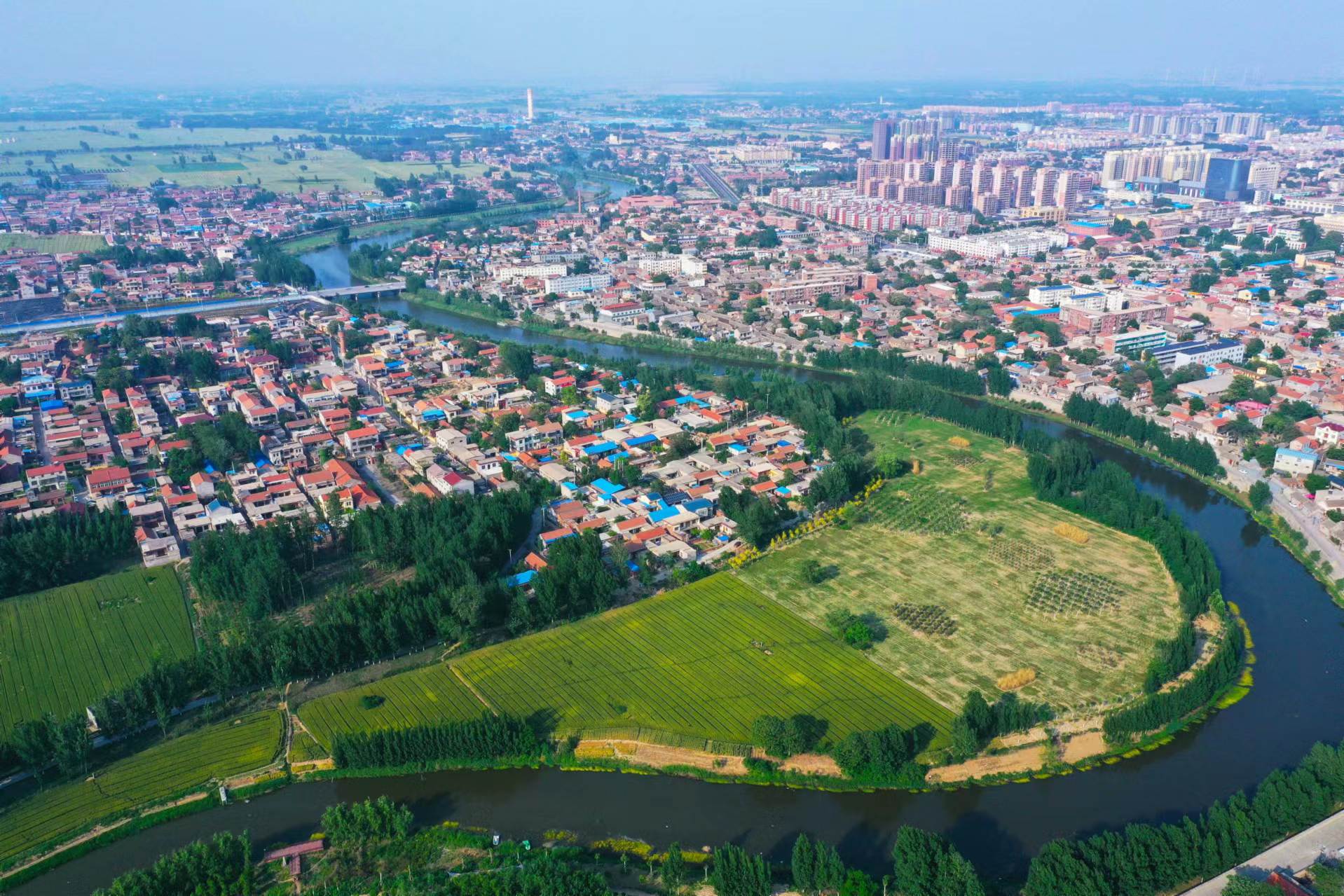
Hebi Dayunhe Junxianduan.
When visiting Hebi’s Dayunhe Junxianduan, savoring the local delicacies and selecting the right accommodation will not only enhance your travel experience but also immerse you in the rich cultural tapestry of this enchanting region. Whether you’re indulging in the flavors of Xun County or relaxing in a serene hotel, you’re sure to create lasting memories.
Frequently Asked Questions
Frequently Asked Questions (FAQs)
1. What is Hebi Dayunhe Junxianduan?
Hebi Dayunhe Junxianduan refers to a section of the Grand Canal located in Xun County, Henan Province, China. This area is celebrated for its rich history and cultural significance, particularly as it showcases traditional architecture and the natural beauty of the surrounding landscape.
2. How can I get to Xun County?
You can reach Xun County by various means of transportation. The nearest high-speed train station is Hebi East, which connects to major cities like Zhengzhou and Beijing. Additionally, you can fly into Zhengzhou Xinzheng International Airport and take a bus or taxi to Xun County.
3. Are there any entry fees for visiting the attractions in Xun County?
Most attractions in Xun County, including the ancient city and scenic areas, are free to enter. However, some specific sites, like the Da Pi Mountain scenic area, may charge an entry fee, typically around 60 RMB. Discounts may be available for students and seniors with valid identification.
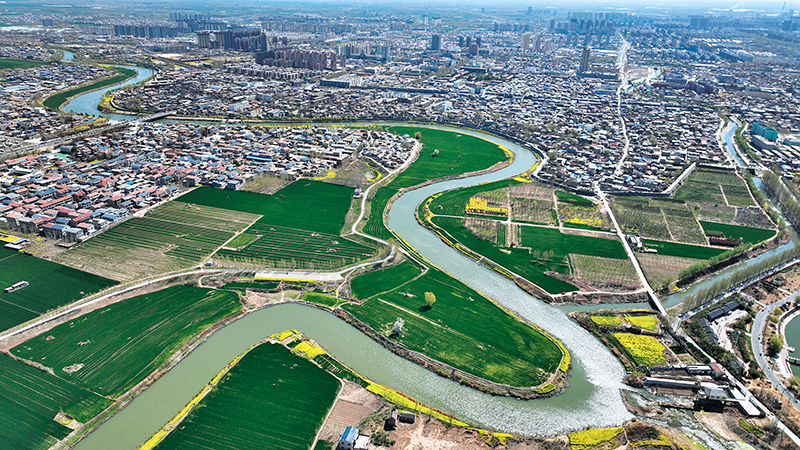
Hebi Dayunhe Junxianduan.
4. What are the must-see attractions in Xun County?
Key attractions include the ancient city of Xun County, Da Pi Mountain (home to the largest stone Buddha in northern China), and the scenic views along the Grand Canal. Each location offers a unique glimpse into the region’s history and natural beauty.
5. What is the best time to visit Xun County?
The ideal time to visit Xun County is during spring (April to June) and autumn (September to November) when the weather is pleasant, and the natural scenery is at its most vibrant. Spring also coincides with local festivals, adding to the cultural experience.
6. What local dishes should I try while in Xun County?
While visiting Xun County, be sure to try local specialties such as Xun County Zimo (a type of flatbread filled with meat and egg), Chen Si Duck Egg (a unique marinated duck egg), and various street foods available in local markets.
7. Are there accommodations available near the attractions?
Yes, there are various accommodation options in and around Xun County, including hotels that offer modern amenities as well as traditional guesthouses that provide a more local experience. Popular choices include hotels near the ancient city and scenic areas for easy access.
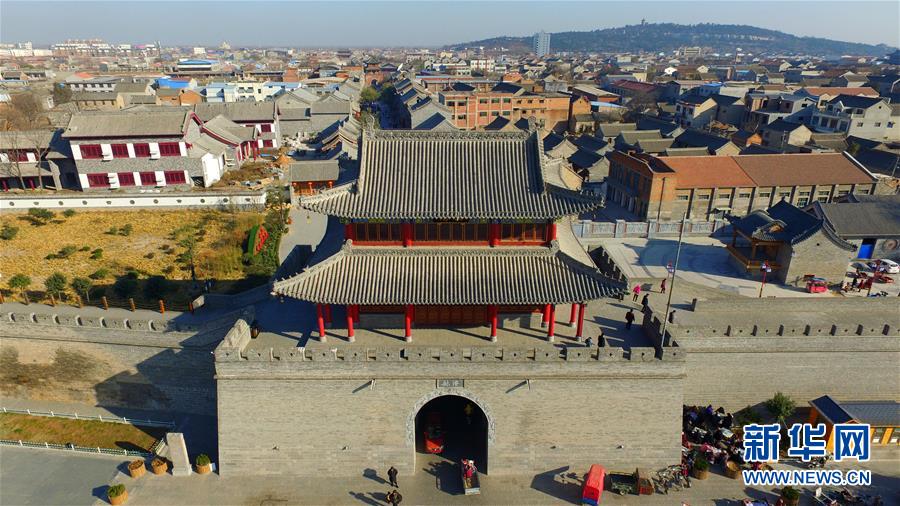
Hebi Dayunhe Junxianduan.
8. Is it easy to get around Xun County?
Yes, getting around Xun County is relatively easy. Public transportation, including buses and taxis, is readily available. For a more flexible experience, consider renting a bicycle or a car to explore the scenic areas at your own pace.
Final Thoughts on Your Trip
As you weave through the enchanting landscapes and rich history of Hebi Dayunhe Junxianduan, you’ll find a tapestry of experiences waiting to be uncovered. This captivating region not only boasts a wealth of cultural heritage but also offers stunning natural beauty that beckons adventurers and history enthusiasts alike.
From the ancient walls of Xun County’s historic town to the serene banks of the Grand Canal, every corner tells a story steeped in tradition and folklore. The blending of history, art, and gastronomy creates a unique travel experience that lingers long after your visit. Explore the majestic Dapi Mountain, savor the local delicacies, and immerse yourself in the vibrant cultural festivities that breathe life into this hidden gem.
Whether you’re strolling through the ancient streets or marveling at the stunning landscapes, Hebi Dayunhe Junxianduan invites you to connect with the past while enjoying the present. This is not just a destination; it’s an invitation to discover the heart and soul of China’s rich cultural tapestry. So pack your bags, set your sights on this extraordinary locale, and let the charm of Hebi Dayunhe Junxianduan create unforgettable memories that will stay with you for a lifetime.
